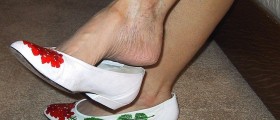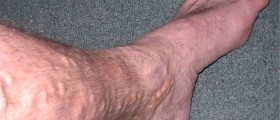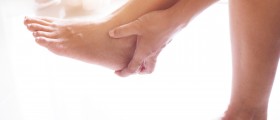
Many pregnant women experience leg problems. Some of them are associated with the extra weight they have been carrying on and others may have been inherited conditions.
It is important to consult your doctor about any pain you have been experiencing.
Leg Cramps
Leg cramps are often present during the pregnancy. They might be just unpleasant but some pregnant woman experience real pain which affects the walking. Doctors have identified some factors that could lead to leg cramps. Baby’s head could pressure the pelvic nerves and lead to cramps. Changes in blood levels of calcium and magnesium in pregnant woman also could induce these muscle problems. Pregnancy changes the gravity center of the body and of course the weight. These increased demands on the muscles cause muscle cramps.
Possible remedies include massage, and some suggest the use calcium supplements. Muscles in good shape usually don’t get cramped, so try to maintain a fit body, before and during the pregnancy.
Even though cramps could be quite unpleasant, they are totally harmless and you don’t have to worry about them.
Varicose Veins
This condition is not serious, but the varicose veins may hurt. They do not form clots or endanger your life. The condition represents a problem with the gravity and weight. Superficial veins get enlarged because of the decreased drainage, blood flows backwards, the veins enlarge even more and that is what causes the pain.
Varicose veins rarely get complicated. Special stocking and girdles used on varicose veins may be quite helpful to relieve the pain. They increase compression on the veins, improve impaired drainage and reduce the pain. Doctors may also recommend exercise, elevating the legs and sclerotherapy.
Some cases are surgically treated. Less invasive treatments are more common than the traditional surgery, including radiofrequency ablation and laser treatment.
Thrombophlebitis
Thrombophlebitis causes a different kind of pain than leg cramps or varicose veins. It affects the veins deep inside the legs and causes inflammation. This condition is serious, for it could produce blood clots and put your life (and your baby’s life, too) in danger. Blood clots may travel to the lungs and cause severe conditions.
You should consult the doctor if your legs hurt even without the cramps and if the squeezing of the calf muscles produces pain. These might be the signs of thrombophlebitis. Doctor will use ultrasound to diagnose thrombophlebitis.
Specialists recommend blood thinners (anti-coagulant medications) to thrombophlebitis patients. Sometimes, medications may require the hospitalization of the patient.

















Your thoughts on this
Loading...